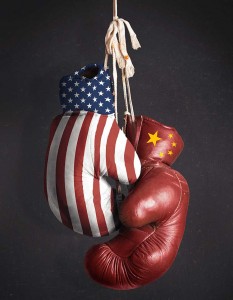USTR Report Argues China’s Compliance with WTO Rules Has Gotten Worse in Recent Years
The Office of the U.S. Trade Representative (USTR) earlier this month released its annually mandated report to Congress on China’s World Trade Organization (WTO) compliance — unsurprisingly, the report did not have good news for China in its quest to be treated like a market economy.
Buying Aluminum in 2018? Download MetalMiner’s free annual price outlook
The annual report — this version marks the 16th such report — to Congress is pursuant to the U.S.-China Relations Act of 2000, which requires the USTR to report on China’s compliance with WTO rules. Following China’s accession to the WTO in 2001, it was expected to move away from a largely state-led model toward a market-based economy.
According to the USTR report, however, China has not done that.
This past November, the U.S. formally informed the WTO that it did not support China’s bid for market-economy status. The status would yield far lower anti-dumping duties on Chinese goods, which are now assessed via third-country price comparisons.
The USTR cites state-led assistance of Chinese enterprises as negatively impacting the global trading system. Despite commitments to change as part of its 2001 WTO accession, the USTR argued China has only become increasingly guided by the hand of the state.
“In fact, over the past five years, despite Chinese pronouncements to the contrary, the state’s role in the economy has increased, as have the seriousness and breadth of concerns facing U.S. and other foreign companies seeking to do business in China or attempting to compete with favored Chinese companies in their home markets.”
Chinese officials criticized the report, questioning the veracity of some of its claims. According to one source, Gao Feng, spokesman for the Chinese Ministry of Commerce, said some of the arguments in the report “falsify the facts.”
According to the WTO’s disputes page, China is currently listed as a respondent in 39 cases (trailing only the U.S. and European Union).
This report is just another point of contention between the two countries (in a growing list of them). With the pending Section 232 investigations, not to mention anti-dumping and countervailing duty probes of products like aluminum foil and common alloy aluminum sheet, some are wondering if a trade war is on the horizon.
MetalMiner’s Annual Outlook provides 2018 buying strategies for carbon steel
It remains to be seen if such a war will materialize — the outcome of the Section 232 probes of aluminum and steel imports will go a long way toward determining that. For the time being, however, the USTR report simply underscored what we already knew: the U.S. has no plans to recognize China as a market economy anytime soon.



Leave a Reply